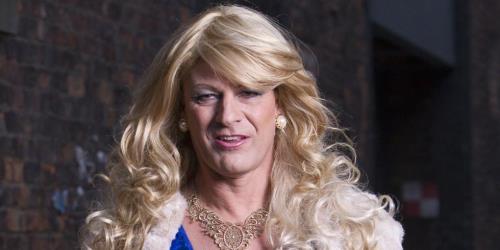Transgender workers and religious freedom v protection from discrimination
31 August 2016

A US court held that forcing a funeral home to allow a male transgender worker to wear women's clothing would restrict the employer's religious beliefs.
The recent dismissal of a transgendered employee by her religious employers has caused some controversy in the United States.
This raises the question of where the balance should lie between religious freedom and protection from discrimination.
The United States' Civil Rights Act prohibits discrimination on the basis of sex, and the Equal Employment Opportunities Commission (EEOC) brought a claim for the worker in question, Stephens.
The EEOC claimed that the employer, a funeral home, had wrongfully dismissed her on the basis of Stephens being transgendered.
Stephens had been employed by the funeral home for some time as a man. Eventually he decided to tell the employer that he had decided to transition to a woman.
She had always identified internally as being a woman and would be returning from an upcoming vacation dressing in accordance with their women's dress code.
The employer called Stephens to a meeting shortly before the vacation and sacked her.
The reason given was that the employer didn't find it acceptable for Stephens to follow the women's dress code.
The District Court agreed that requiring Stephens to follow a dress code specific to gender was discriminatory. However, it then turned to the Religious Freedom Restoration Act (RFRA).
The RFRA provides that there needs to be a compelling reason for the State to restrict a person's religious beliefs. In doing so the State needs to cause the least possible restriction to that person's religious freedom.
As it happened the funeral home was owned by a devout Baptist family. The court held that forcing the funeral home to allow Stephens to wear women's clothing would restrict the employer's religious beliefs and accordingly Stephens' case failed.
Interestingly the judge commented that Stephens or the EEOC could have proposed an alternative, namely gender neutral clothes being worn, and that would have found favour with him.
New Zealand has also been wrestling with protecting transgendered people in the workplace.
An Auckland hairdresser, Ahren Hemmingson, notified her employer, Matthew Swan, that she would be transitioning from male to female.
The employer raised all sorts of concerns and Hemmingson, who changed her name to Dakota, eventually felt she had no choice but to resign.
Hemmingson brought a claim in the Employment Relations Authority. The authority accepted that Hemmingson had effectively been forced out and upheld the claim.
Our Human Rights legislation doesn't expressly cover discrimination against transgender people.
It is open to interpretation that the prohibited ground for discrimination of 'sex' could include discrimination against a transgendered person. Influential decisions in the United Kingdom and Europe support this view.
Often these cases, as happened in the US, raise objections from people on religious grounds.
Unquestionably in the common law world our Christian heritage is reflected and has impact on people in employment. One only has to analyse the events that create most of our public holidays to see that.
Another example is that church ministers have traditionally not been church employees. At the extreme they are seen to be, if you like, employed by God.
In an English Court of Appeal case in 1983 Lord Justice Dylan commented on this. He said that "[i]n the spiritual sense, the minister sets out to serve God as his master; I do not think that it is right to say that in the legal sense he is at the point of ordination undertaking by contract to serve the church or the conference as his master throughout the years of his ministry".
Similarly it can be hard to get our jurisdiction to accept that the relationship is a contractual one, whether because of the attitude we through the courts have taken to the clergy or because of the interpretation of their engagement documents.
The Reverend 'Mabon' found this out in a New Zealand case he lost in our Court of Appeal in 1998.
The New Zealand Human Rights legislation allows a few exceptions to the prohibition on religious discrimination by employers.
These exemptions include integrated private schools, roles relating to national security, domestic employment in a private household, or the sex or religion of an employee where the person is employed for the purposes of an organised religion (a church).
A case in the Supreme Court of Ireland in 1979 illustrates some of these issues.
Two employees, both teachers and priests, worked at Maynooth seminary in Ireland. The seminary was also a Pontifical University.
The employees both decided to become laypeople and abandon their priestly attire. One had also published articles that the college saw as prejudicial to ecclesiastical authority.
These actions led to their dismissal by the college. They claimed they had been wrongfully dismissed and religiously discriminated against. McGrath and O'Ruairc sued the trustees of Maynooth College accordingly.
The Irish constitution provided that a religious denomination has the right to manage its own affairs and that the State isn't to impose any disabilities or make any discrimination based on the grounds of religious profession, belief or status.
So the Supreme Court of Ireland found that the employees' right to be free from discrimination was overwhelmed by the employer's right to freedom of religion.
The two employees failed in their case.
We are evolving as a society and have a plurality of religions, including people of non-Christian faiths.
It is not clear how the US case would be decided in New Zealand today.
Readers no doubt would have a view on this. Do we have the right balance between religious freedom and discrimination in this country?


